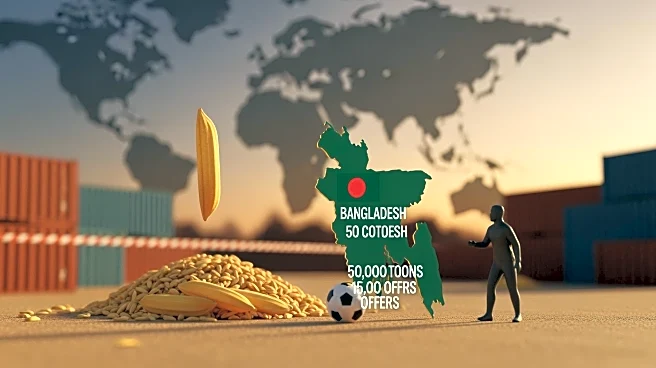What's Happening?
Bangladesh is currently evaluating offers to purchase 50,000 metric tonnes of rice through a tender process. The tender, which closed on March 23, has attracted bids from various international trading
companies, with the lowest bid reported at $355.99 per metric ton CIF. The rice is intended for shipment to Chittagong and Mongla ports, with a requirement for delivery within 40 days of contract award. This move is part of Bangladesh's efforts to stabilize domestic food prices, which remain high despite strong harvests and healthy reserves. The tender specifies that rice can be imported from any country except Israel.
Why It's Important?
The decision by Bangladesh to import rice is significant as it highlights ongoing challenges in managing domestic food prices. Despite strong harvests, the high cost of rice within the country suggests potential issues in distribution or market dynamics that could affect food security. The tender process also underscores Bangladesh's reliance on international markets to meet its food needs, which could have implications for global rice trade dynamics. Companies participating in the tender stand to benefit from securing a contract, while Bangladesh aims to alleviate domestic price pressures.
What's Next?
Bangladesh will continue to assess the offers received, with a decision expected once all factors, including price and delivery terms, are considered. The outcome of this tender could influence future procurement strategies and impact domestic rice prices. Stakeholders, including traders and policymakers, will be closely monitoring the situation to gauge its effects on the local market and international trade relations.
Beyond the Headlines
The tender process reflects broader economic strategies employed by Bangladesh to manage food security and price stability. It also highlights the complexities of international trade, where geopolitical considerations, such as the exclusion of Israel, play a role in procurement decisions. Long-term, this approach may influence Bangladesh's agricultural policies and its engagement with global markets.










